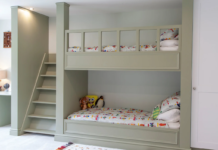When bringing a new puppy into your home, there are many things to consider in addition to the initial excitement of adding a new family member. A new puppy checklist can help you prepare for your adorable new arrival. From food and supplies to vaccinations and socialization, there are a lot of things to think about when you bring home a new puppy. Use this checklist to make sure you have everything you need to give your new puppy a happy and healthy start.
Behavioral Training
Behavioral training helps ensure that your pup will develop into a well-behaved adult dog. The best time to start behavioral training and socialization is when your puppy is young. Puppies are more receptive to learning at an early age and will be more likely to develop good habits. Make sure you are consistent with your commands and rewards/punishments. This will help your pup learn your expectations of them and make it easier for them to follow instructions.
Positive reinforcement is one of the most effective ways to train a dog. This means rewarding your pup when they do something correctly rather than punishing them when they make a mistake. Positive reinforcement will help motivate your pup and make training more fun for both of you. Training a puppy can take time and patience, so don’t get frustrated if he doesn’t learn everything immediately. Just keep practicing regularly and be consistent in your commands, and eventually, he’ll catch on.
Vaccinations and Other Health Concerns

One of the most important things you can do for your new puppy is to ensure they get vaccinated against common diseases. Puppies should receive their first round of shots at around eight weeks old, with follow-up shots at 12 and 16 weeks old. Several different types of vaccines are available, so be sure to discuss which ones are appropriate for your area and lifestyle with your veterinarian. Vaccines help protect puppies from diseases such as distemper, parvovirus, hepatitis, leptospirosis, and rabies.
Another thing to keep in mind when raising a puppy is that they are susceptible to parasites such as worms and ticks. It’s important to deworm your puppy regularly and use tick prevention products specifically formulated for dogs. Parasites can cause serious health problems in young pups, so it’s crucial to take steps to prevent them from becoming infected.
In addition to vaccines and parasites, there are other health concerns that owners should be aware of when raising a puppy. Some breeds are more prone than others to certain illnesses or conditions (e.g., hip dysplasia in German Shepherds). Be sure to ask your veterinarian about any specific health risks associated with your pup’s breed. Puppy and dog insurance can help mitigate the costs associated with breed-related issues, as well as other health issues.
Food and Supplies
When you’re getting ready to bring a new puppy into your home, one of the first things you’ll need to do is stock up on food and supplies. You’ll need to buy puppy food to meet the specific nutritional needs of your dog. There are many different types of puppy food available, so be sure to pick one that is age-appropriate. Pups also need their own food bowls, toys, and crate. A crate can be a great way to keep your puppy safe and secure when you’re not able to watch them, so be sure to choose a crate that is the appropriate size for your puppy. Don’t forget to pick up a leash, collar, and any other accessories you think would make them more comfortable in their new home.
Grooming and Hygiene
The basics of grooming and hygiene for a new puppy include keeping their coat clean and free of mats, brushing their teeth regularly, trimming their nails, and cleaning their ears. Coat care begins with regular brushing. This helps remove dirt, debris, and dead hair from the coat, which can cause mats. Mats can be painful and difficult to remove if allowed to build up. There are a variety of brushes available depending on the type of coat your pup has. A slicker brush is good for short-haired breeds, while a curry comb or pin brush works well for long-haired breeds.
Nails should get trimmed regularly using dog nail clippers (human nail clippers can be too sharp). Nails can grow too long and curl under if left untrimmed, leading to pain and infection. Start trimming nails when your puppy is young, so they get used to having them done. You may only need to clip the tips of the nails until they get used to doing this routinely. Ears should also be cleaned regularly using an ear cleaner made specifically for dogs, as human ear cleaners can be too harsh.
A new puppy checklist covers topics such as feeding, training, and vaccinations and provides a timeline for when each task should be completed. By following the checklist, new puppy owners can ensure that they provide their puppy with the best possible care.

























